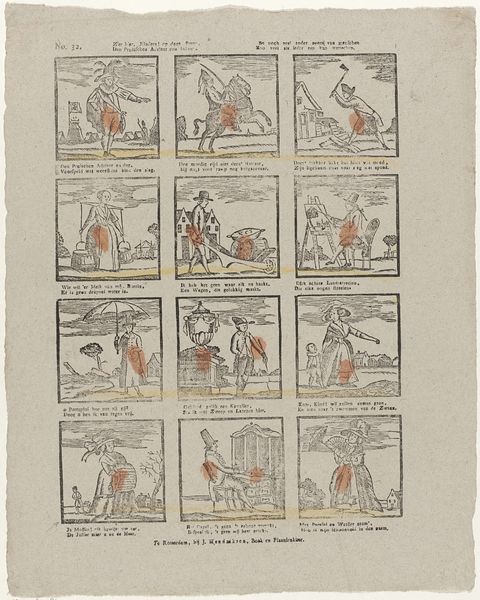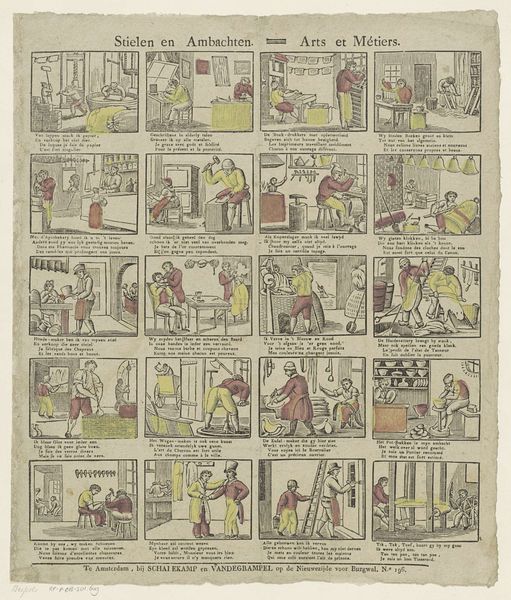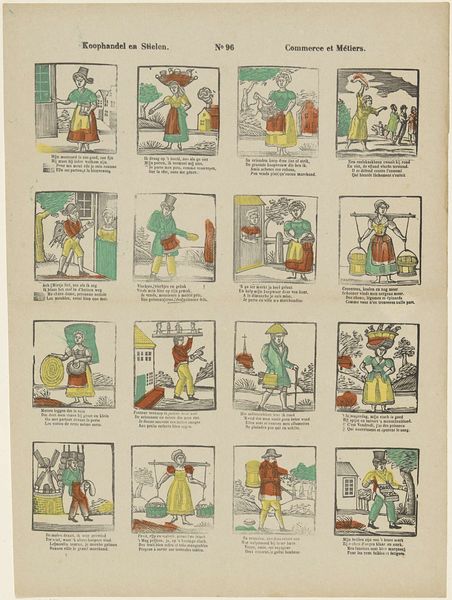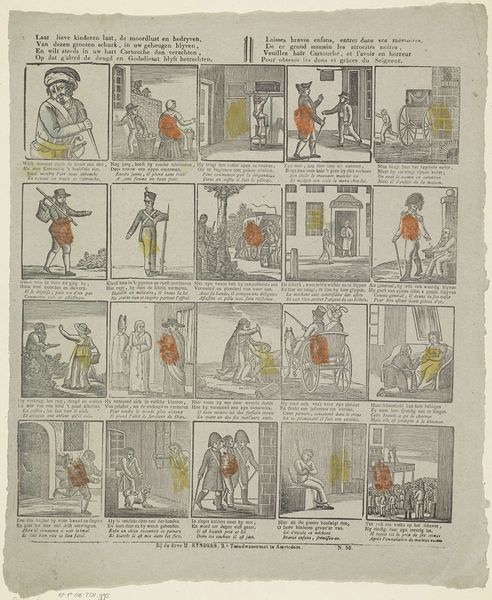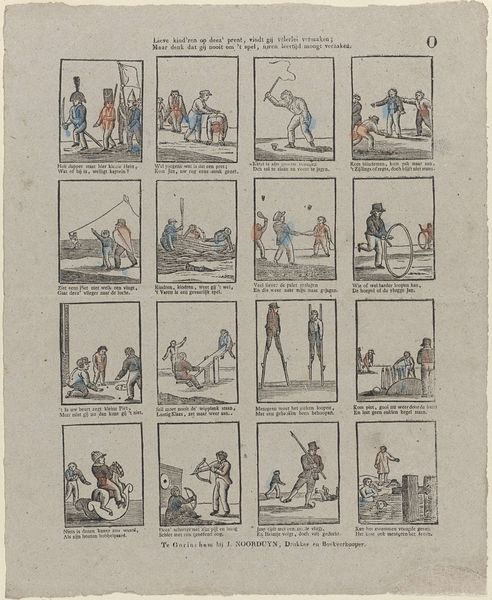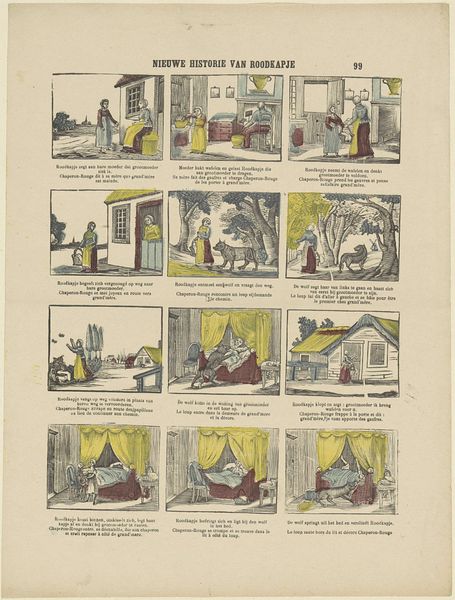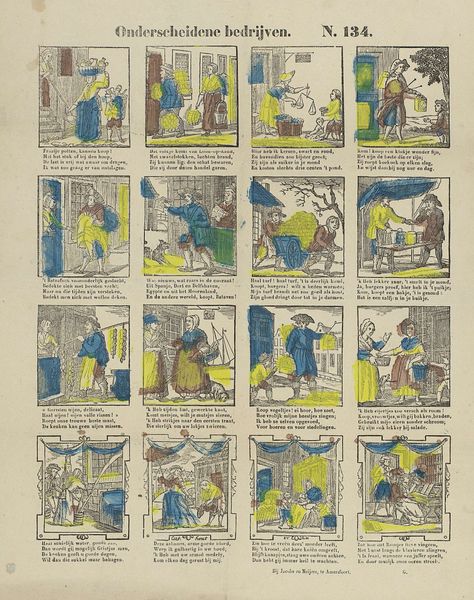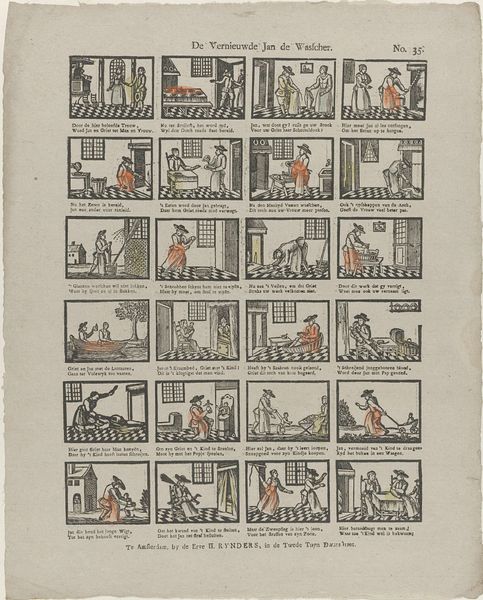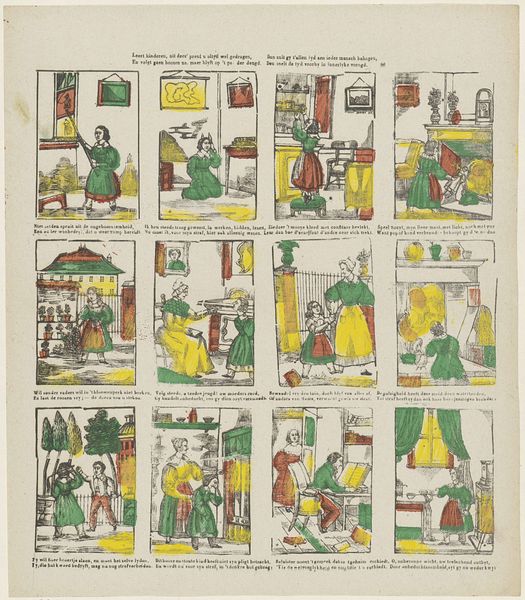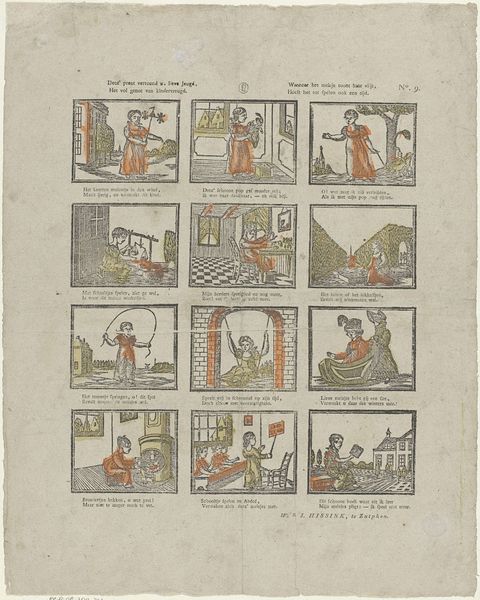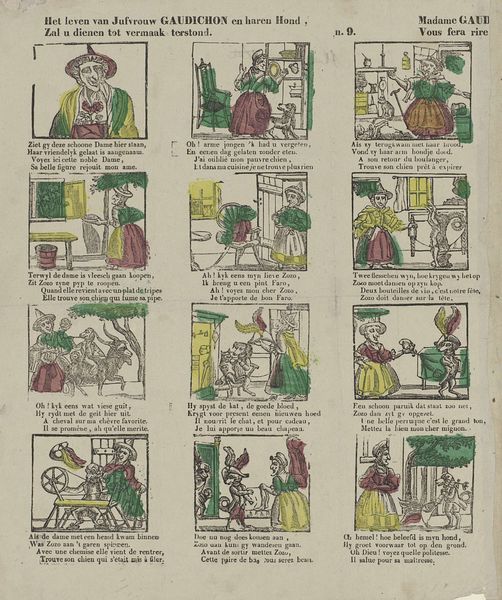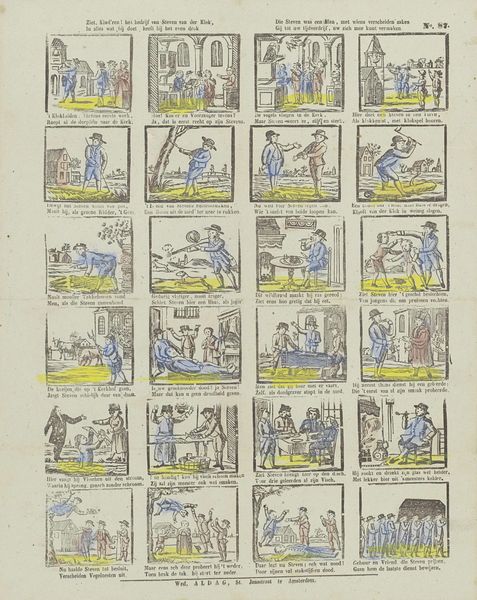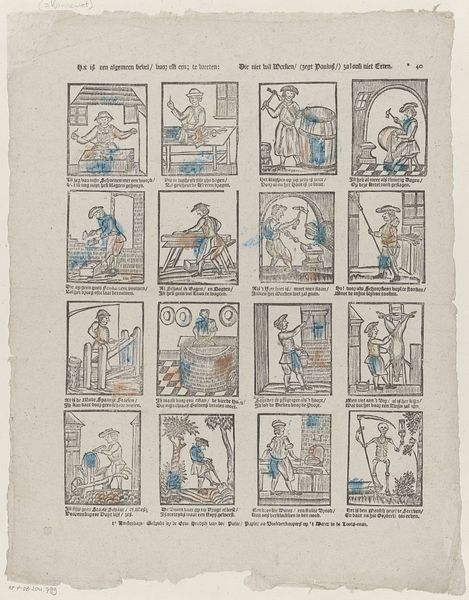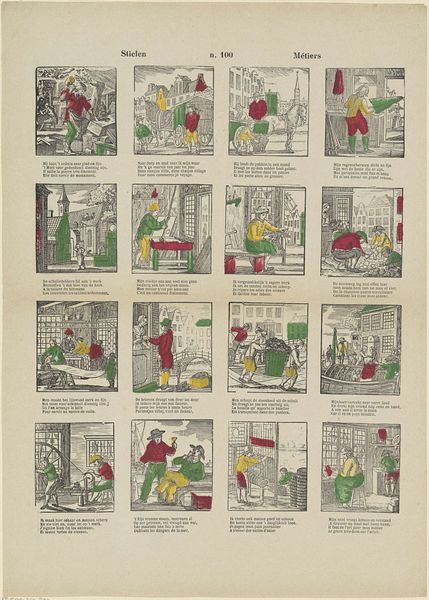
Niet steeds brengt rijkdom of het geld den mensch geluk en voorspoed aan, / Zoo als g' uit de geschiedenis van Hans van Polen na kunt gaan 1850 - 1870
0:00
0:00
johannesegbertusvanlieshout
Rijksmuseum
graphic-art, print, etching, engraving
#
graphic-art
#
comic strip sketch
#
quirky sketch
#
narrative-art
#
dutch-golden-age
# print
#
etching
#
sketch book
#
personal sketchbook
#
idea generation sketch
#
sketchwork
#
thumbnail sketching
#
comic
#
sketchbook drawing
#
genre-painting
#
storyboard and sketchbook work
#
sketchbook art
#
engraving
Dimensions: height 370 mm, width 306 mm
Copyright: Rijks Museum: Open Domain
Curator: Right now, we're standing in front of a piece titled "Niet steeds brengt rijkdom of het geld den mensch geluk en voorspoed aan, / Zoo als g' uit de geschiedenis van Hans van Polen na kunt gaan," which roughly translates to "Wealth and money do not always bring happiness and prosperity, as you can see from the story of Hans van Polen." It's by Johannes Egbertus van Lieshout, dating from 1850 to 1870. What are your initial thoughts? Editor: It feels like looking at a very old, slightly melancholic comic strip. There’s a naive quality to the drawing, and the muted colours evoke a sense of faded glory, maybe even warning, don't you think? Curator: Absolutely. It’s an etching and engraving, intended as graphic art. Each frame tells a piece of Hans's story. What stands out to me is how van Lieshout uses composition. Each vignette is contained but related, almost like a storyboard about wealth. Editor: Precisely! There’s a sequential element – a progression of fortune and perhaps misfortune. I see a figure chopping wood, implying perhaps humble beginnings. Then we see grander scenes - luxurious garments, suggesting increasing prosperity, and finally figures toiling or despairing alone, implying ultimate decline. Curator: The text is key, anchoring each scene to a broader narrative about the dangers of wealth. It also highlights how appearances can deceive us. Hans seems to rise in status and comfort throughout the sequence, yet the overarching title makes it clear that things aren't as rosy as they seem. It really reflects the artist’s view that prosperity is not the final indicator of wellbeing or fulfillment. Editor: Indeed, one almost feels sympathy for Hans’ plight as one observes him go through wealth that’s both a blessing and curse. And looking at its construction again – a storyboard within a printed medium…it prefigures how stories would be told serially on broadsides, and how popular narratives would evolve. I'm taking something away, thinking that while times change and mediums develop, stories stay the same. Curator: What a great way to wrap it all up. And on my part, next time I encounter something old or slightly naive, maybe I'll cut it a bit of slack - who knows, it might just be trying to warn me about money.
Comments
No comments
Be the first to comment and join the conversation on the ultimate creative platform.
